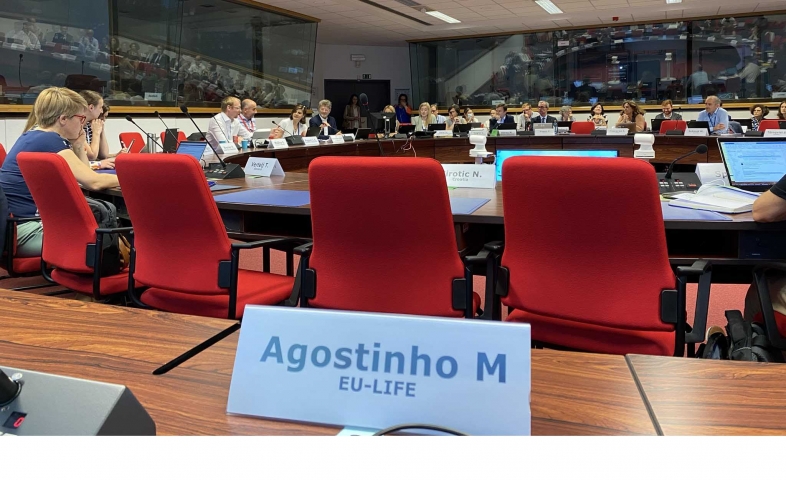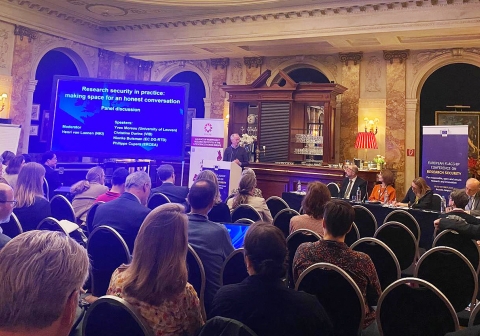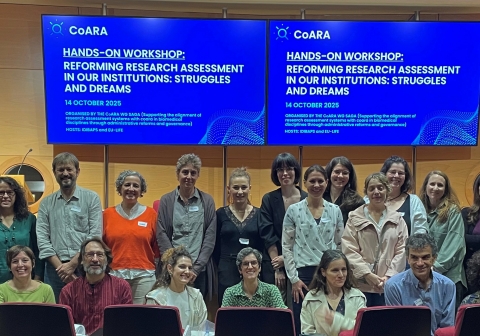What we are doing
EU-LIFE strongly stands for making the European Research Area (ERA) a reality. A healthy Research & Innovation ecosystem needs strong institutions and cannot fall solely on the shoulders of individual researchers or projects. We support the ERA by participating at stakeholder platforms and related working groups aimed at the advancement of ERA, as well as working actively with our member institutes in the implementation of ERA policies. Some of our latest actions in our contribution to ERA are:
- Co-representing research performing organisations in the ERA Forum as member of the Commission expert group on the ERA Forum
- Setting up EU-LIFE 12 priorities for the implementation of the ERA Policy Agenda (2022-2024)
- Releasing a statement with recommendations for a stronger and renewed ERA and a reaction to the EC communication on the new ERA
- Input into the EU Forum for Transition, including participation in the “Expert group on the ERA Forum for Transition workshop with the ERA stakeholders”, where we provided our Feedback for the ERA and Forum for Transition on values, principles and priorities of the ERA Pact
- Slovenian Presidency of the EU Council meeting with stakeholders which resulted in the draft of the Council conclusions on the future governance of the European Research Area
We mantain regular interactions with DG Research & Innovation Units leading ERA and Open Science and participating in key activities such as the Slovenian Presidency Conference 'New European Research Area - Towards a Responsible Knowledge-Driven Society of the 3rd Millennium' (2021) and the Hungarian Presidency's informal meeting on the competitiveness and fragmentation of ERA (2024).
We launched the EU-LIFE policy webinar series on EU high-priority topics with the aim to enhance and diversify our interactions with key policymakers. The topics covered to date include the opportunities for postdoc researchers in Europe and research assessment.
We promote internal discussions on specific aspects of our policy roadmap, such as the role of research institutes in the European research and innovation ecosystem.
What we are doing in relevant fields for the definition of ERA
Why it’s important
Launched in 2000 by the European Commission, ERA is at the heart of the common European policy for research, aiming at developing a “common market” for research and innovation in Europe and promoting a leading role for European research worldwide. As the overarching EU policy for research and innovation, ERA encapsulates a vision for future and shapes subsequent policies.
In 2021, the Council of the European Union presented a renewed ERA and adopted a Pact for Research and Innovation (R&I) in Europe setting out strategic priorities and a streamlined governance framework for the ERA, including an ERA policy agenda for 2022-2024. This agenda set out ERA actions to contribute to the priority areas defined in the Pact for R&I, and include among others: open sharing of knowledge, advance towards the reform of the research assessment, promote attractive and sustainable research careers, promote gender equality and foster inclusiveness, upgrade EU guidance for a better knowledge valorisation, strengthen research infrastructures in the ERA, promote international cooperation based on reciprocity, bring science closer to citizens, improve EU-wide access to excellence, and enhance the strategic capacity of Europe’s public research performing organisations. The implementation of the ERA Policy Agenda 2022-2024 is ongoing, in parallel with the design of the agenda for the years 2025-2027.



